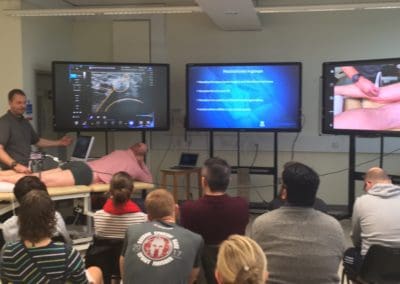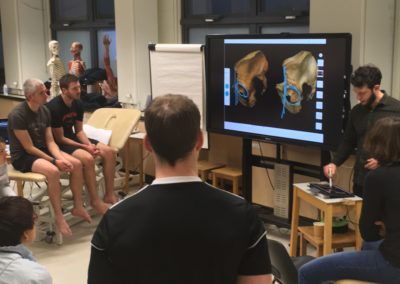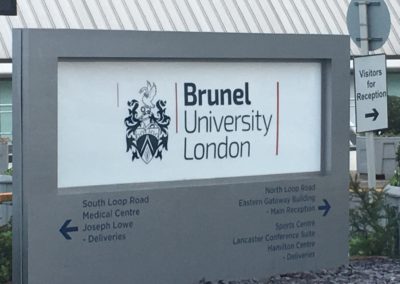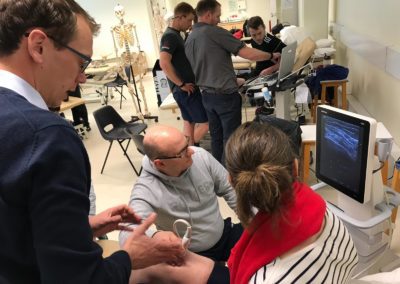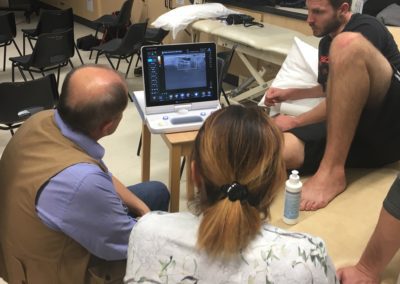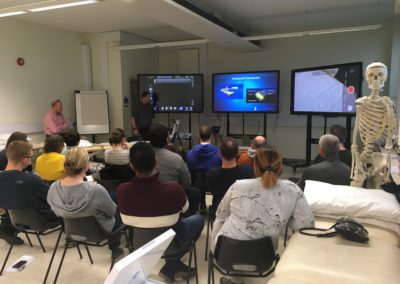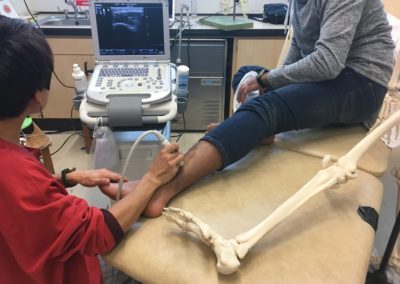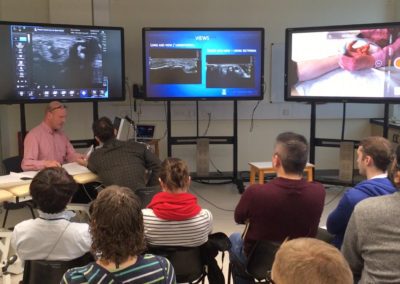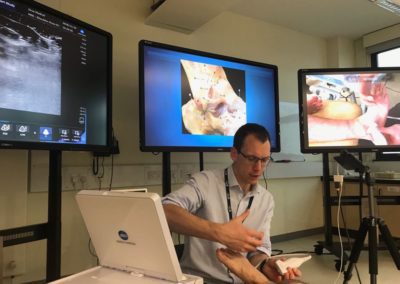Examples of our teaching
Course Dates & Booking
All prices below are inclusive of VAT
If your attendance on the course is to be funded by your trust or you have any other queries then please contact us.
| Date | Places | Price | |
|---|---|---|---|
| 28th February 2026 - Advanced MSK Ultrasound course - Day 1 Upper limb | 5 in stock | £340.00 | |
| 1st March 2026 - Advanced MSK Ultrasound course - Day 2 Lower Limb | 5 in stock | £340.00 | |
| 28th February and 1st March 2026 - Advanced MSK ultrasound course | 1 in stock | £599.00 | |
| 20th June 2026 - Advanced MSK Ultrasound course - Day 1 Upper limb | 15 in stock | £340.00 | |
| 21st June 2026 - Advanced MSK Ultrasound course - Day 2 Lower Limb | 15 in stock | £340.00 | |
| 20/21 June 2026 - Advanced MSK ultrasound course | 14 in stock | £599.00 | |
| 21st November 2026 - Advanced MSK Ultrasound course - Day 1 Upper limb | 15 in stock | £340.00 | |
| 22nd November 2026 - Advanced MSK Ultrasound course - Day 2 Lower Limb | 15 in stock | £340.00 | |
| 21/22 November 2026 - Advanced MSK ultrasound course | 15 in stock | £599.00 | |
| Date | Places | Price |
About this course
Take your musculoskeletal ultrasound skills to the next level with our comprehensive two-day advanced course. This intensive program is designed for clinicians already confident with core MSK ultrasound who want to master more complex areas. Through a combination of detailed presentations, extensive hands-on practical sessions with a low delegate-to-tutor ratio, and real-world case study discussions, you will gain the confidence to tackle a wider range of clinical presentations. As part of the course, you’ll receive access to a library of online lectures. This course is perfect for any MSK clinician looking to progress their skills after completing an introductory MSK ultrasound course or PG Cert programme.
Day 1: Upper Limb
You will master the intricate anatomy of the hand and wrist, including the ulnar collateral ligament of the thumb, extensor hood, and scapholunate ligament, while learning to assess tendon injuries. We’ll then progress to the elbow, exploring various approaches to visualise the distal biceps tendon and surrounding structures. The day also includes dedicated sessions on advanced nerve imaging of the ulnar, radial, and median nerves, and refines your shoulder scanning technique for key structures like the rotator cuff and suprascapular nerve.
Day 2: Lower Limb
The day begins with a foundational understanding of the sonographic appearance of muscle and tendon fibers, enabling you to accurately identify and classify injuries to the quadriceps, calf, and hamstring muscles. You will then explore the complex anatomy of the foot and ankle, mastering advanced techniques for scanning ligaments, the plantar plate, and Morton’s neuroma. The course concludes with a detailed session on identifying and assessing the key nerves of the lower limb, completing your advanced diagnostic skill set.
The course takes place at the fantastic facilities of the Mary Seacole Building, Brunel University London, 8 Kingston Ln, Uxbridge UB8 3PN View Location Maps
Who is this course suitable for?
Those who have previously attended an Introductory MSK ultrasound course or who have 1/2 years of experience using MSK Ultrasound in clinical practice. Please get in touch if you are unsure via [email protected].
This course is suitable for allied health or medical professionals who:
- have experience of working with patients with musculoskeletal injuries or complaints
- Are employed in a professional environment that enables you to utilise this within your practice in the future.
- Relevant medical or allied health professional experience or qualifications.
- Current registration with the relevant UK professional body eg HCPC or GMC, or foreign equivalent if travelling from abroad.
Planning Your Visit: Travel & Accommodation
Planning your journey to our course at Brunel University, Uxbridge (UB8 3PN) is straightforward, thanks to its excellent transport links. For our attendees from across the globe, the campus is conveniently located just a 15-minute taxi or bus ride from London Heathrow Airport (LHR). The university is also easily accessible via public transport; Uxbridge Underground Station is the terminus for both the Metropolitan and Piccadilly lines, providing direct access from central London and major rail hubs like King’s Cross St Pancras. For those driving, the campus is situated near the M25, M40, and A40 motorways. There is parking available on-site, a short walk from the venue.
You will find a wide range of accommodation options nearby. Please note: The following hotels are listed as helpful suggestions only. We do not have a formal partnership with them and take no responsibility for your booking or the quality of your stay.
For maximum convenience, the Lancaster Hotel & Conference Centre is located directly on the Brunel campus. Nearby in Hillingdon, The Red Lion Hotel offers a more traditional setting. Additionally, Uxbridge town centre, a short bus, walk or taxi ride away, has several reliable chains, including a Premier Inn and a Travelodge.
We recommend booking your accommodation well in advance to secure the best rates, ensuring a comfortable and stress-free stay while you attend our highly regarded musculoskeletal ultrasound course.
The next course starts in....
Day(s)
:
Hour(s)
:
Minute(s)
:
Second(s)
EXTRA ONLINE LECTURES AND TUTORIAL VIDEOS

ONLINE MSK ULTRASOUND LECTURES 24/7
All course delegates who attend our MSK Ultrasound training courses will get unlimited access to online lectures by our course tutors. These provide a more in-depth appreciation of the topics outlined below. We are constantly adding to this selection, so keep your eyes peeled!
- An introduction to the Physics of MSK ultrasound
- An introduction to probe skills and orientation to the image
- Ultrasound system settings and knobology
- An introduction to recognising pathology on MSK ultrasound
- An introduction to quality assurance and professional issues of MSK ultrasound
GAIN ACCESS TO OUR PRIVATE FACEBOOK MSK ULTRASOUND COMMUNITY OF PRACTICE
By attending our courses you will also gain access to your tutors in our private, Facebook community of MSK Ultrasound practice with specific groups for upper and lower limb MSK Ultrasound pathology, discussing anonymised cases and articles of interest. We also have groups for upper and lower limb guided injection techniques, discuss your techniques – what went well, what could be improved and what the evidence is. Lastly, but importantly we have established groups on training and governance.

Course outline
Day 1 (Upper Limb)
| Time | Session | Activity |
|---|---|---|
| 9.00-9.15 | Registration, introductions and coffee | |
| 9.15-10.45 | Detailed presentation on the anatomy and ultrasound appearances of the ulnar collateral ligament of the thumb, the dorsal hood and saggital bands, finger extensor tendon injuries, scapholunate ligament and flexor tendon injuries. Followed by practical to visualise these structures with tutor feedback. | Practical session and demonstration - small groups, high specification US system. |
| 10.45 -11.00 | Break - Coffee and biscuits! | |
| 11.00-12.15 | Detailed presentation on the anatomy and ultrasound appearances of the different methods to approach visualising the distal biceps tendon, the collateral ligaments, annular ligament, flexor and extensor muscle groups. | Practical session and demonstration - small groups, high specification US system. |
| 12.15-12.45 | 'From the clinic' Case study discussions on hand and elbow pathology. | Presentation and group discussions. Opportunity for delegates to present cases. |
| 12-1.30 | Lunch | |
| 1.30-3 | Nerves of the upper limb: Detailed presentation on the anatomy and ultrasound appearances of the different methods to approach visualising the ulnar, radial and median nerves, including the posterior interosseous nerve and the superficial radial nerve. Followed by practical to visualise these structures with tutor feedback. | Practical session and demonstration - small groups, high specification US system. |
| 3-3.15 | Break - Coffee and biscuits! | |
| 3.15 - 4.30 | The Shoulder - Detailed presentation on the anatomy and ultrasound appearances of the different methods to approach tips, tricks and pitfalls of scanning the rotator cuff. Learn to identify the Suprascaular nerve, Pectoralis major /short head of biceps tendons, rotator interval , rotator cable. Coracoacromial ligament, coracohumeral ligament.Followed by practicals to visualise these structures with tutor feedback. | Practical session and demonstration - small groups, high specification US system. |
| 4.30-5 | 'From the clinic' Case study discussions on upper limb nerve pathology and the shoulder. | Presentation and group discussions. Opportunity for delegates to present cases. |
| 5 | Finish |
Day 2 (Lower limb)
| Time | Session | Activity |
|---|---|---|
| 9.00-9.15 | Registration, introductions and coffee. | |
| 9.15-9.45 | Normal sonographic appearance of muscle and tendon fibres, and anatomy behind the appearance. Overview of muscle/tendon injury and role of imaging/clinical testing. | Presentation |
| 9.45-10.45 | Lower limb muscle groups - Part : Detailed presentation of the anatomy and sonographic appearance of the Quadriceps and calf muscles. Develop an ability to visualise the rectus femoris, vastus lateralis, vastus medialis, vastus intermedius muscle groups from their origins to their distal insertions. Visualise the gastrocnemius, soleus, flexor hallucis and plantaris. Identifying key landmarks to assist. Enhanced by anatomy images and pathological sonographic images. | Practical session and demonstration - small groups, high specification US system. |
| 10.45 -11 | Break - Coffee and biscuits! | |
| 11-12.30 | Lower limb muscle groups - Part 2: Detailed presentation of the anatomy and sonographic appearance of the Hamstring muscles - develop a practical ability to visualise the Semimembranosus, Semitendinosus and Biceps Femoris muscle groups from their origins to their distal insertions. Identifying key landmarks as reference points. Enhanced by anatomy images and pathological sonographic images. | Practical session and demonstration - small groups, high specification US system. |
| 12.30 -1 | 'From the clinic' Case study presentations and discussions - reporting and classification of injuries | Presentation and group discussions. Opportunity for delegates to present cases. |
| 1-1.45 | Lunch | |
| 1.45 - 3.15 | Advanced foot and ankle ultrasound - including dorsal Chopart joint ligaments, medial ankle ligaments including spring. Plantar plate and Mortons neuroma. | Practical session and demonstration - small groups, high specification US system. |
| 3.15-3.30 | Break - Coffee and biscuits! | |
| 3.30- 4.30 | Lower limb nerve visualisation: Detailed presentation on the anatomy and ultrasound appearances of key lower limb nerves | Practical session and demonstration - small groups, high specification US system. |
| 4.30-5 | 'From the clinic' Case study presentations and discussions around nerve pathology. | Presentation and group discussions. Opportunity for delegates to present cases. |
| 5 | Finish |
Unique 3 screen presentation setup – probe, ultrasound and tutorial!
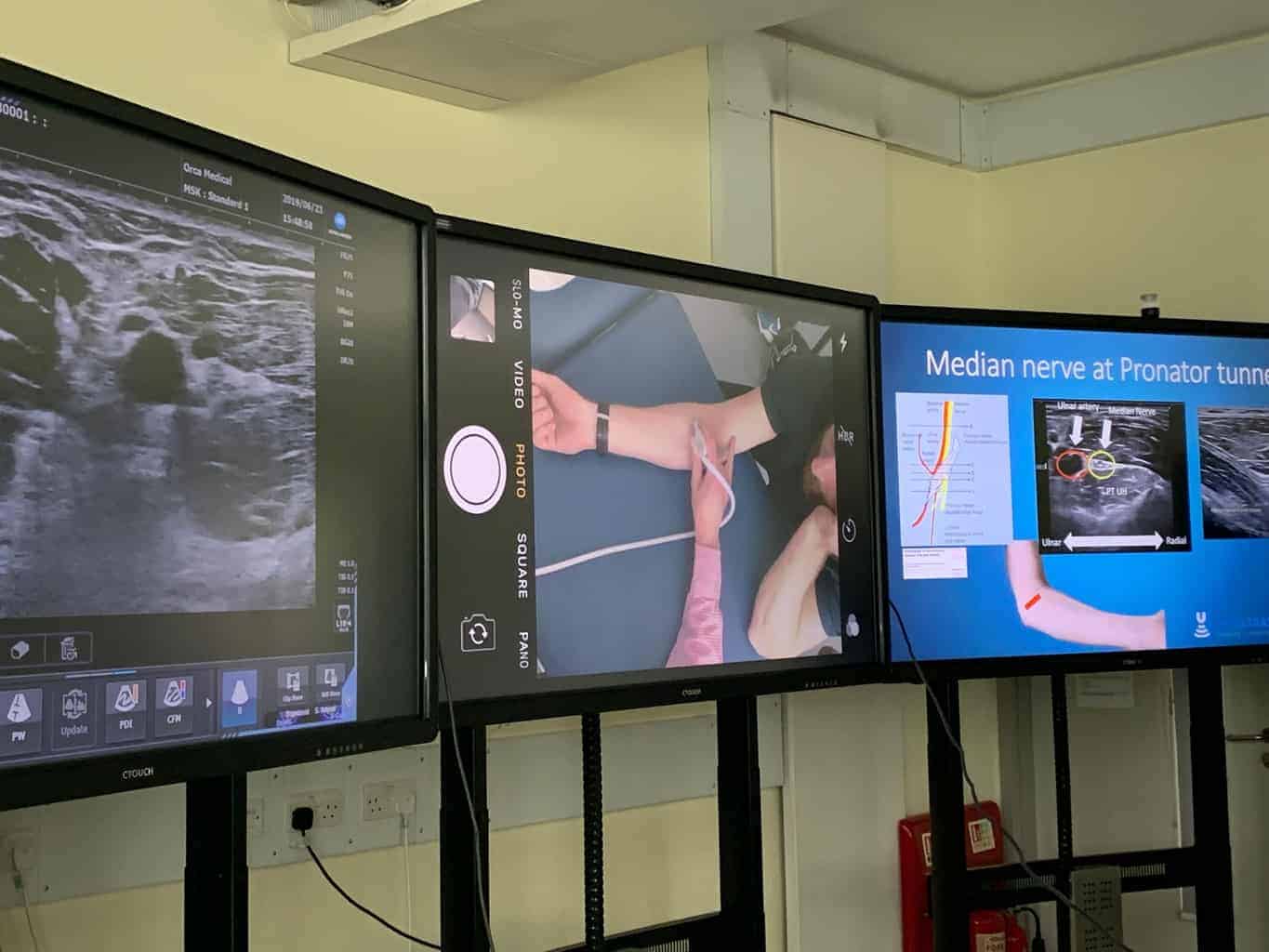
Course Dates & Booking
All prices below are inclusive of VAT
If your attendance on the course is to be funded by your trust or you have any other queries then please contact us.
| Date | Places | Price | |
|---|---|---|---|
| 28th February 2026 - Advanced MSK Ultrasound course - Day 1 Upper limb | 5 in stock | £340.00 | |
| 1st March 2026 - Advanced MSK Ultrasound course - Day 2 Lower Limb | 5 in stock | £340.00 | |
| 28th February and 1st March 2026 - Advanced MSK ultrasound course | 1 in stock | £599.00 | |
| 20th June 2026 - Advanced MSK Ultrasound course - Day 1 Upper limb | 15 in stock | £340.00 | |
| 21st June 2026 - Advanced MSK Ultrasound course - Day 2 Lower Limb | 15 in stock | £340.00 | |
| 20/21 June 2026 - Advanced MSK ultrasound course | 14 in stock | £599.00 | |
| 21st November 2026 - Advanced MSK Ultrasound course - Day 1 Upper limb | 15 in stock | £340.00 | |
| 22nd November 2026 - Advanced MSK Ultrasound course - Day 2 Lower Limb | 15 in stock | £340.00 | |
| 21/22 November 2026 - Advanced MSK ultrasound course | 15 in stock | £599.00 | |
| Date | Places | Price |

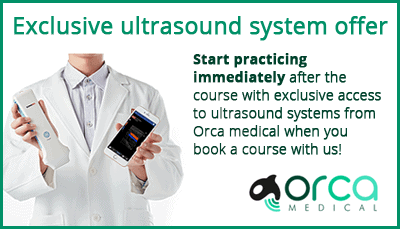
Course location
Your Course Tutors

Mr Stuart Wildman
MSc, BSc (Hons) Physiotherapy, HCPC, MCSP, PG Cert/CASE accredited Musculoskeletal Sonography, PG Dip injection therapy
Stuart is an Extended Scope Physiotherapist and MSK Sonographer working in the NHS in London. He founded The Ultrasound Site. He has an interesting working week, dividing his time between Radiology and Physiotherapy, here he performs both diagnostic and guided interventions in both. He qualified from the University of Southampton in 2003 with a BSc Physiotherapy, and went on to gain an MSc in Advanced Neuromusculoskeletal Physiotherapy at The University of Hertfordshire and a PG Cert in MSK Sonography at Canterbury and Christ Church University.
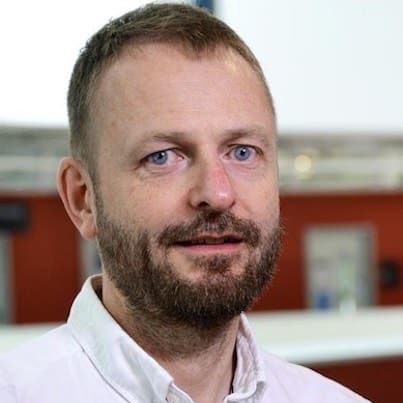
Mr David Baker
BSc Physiotherapy HCPC, MCSP, PG Cert Musculoskeletal Sonography
David brings together his unique skills as ESP, MSK Sonographer, experienced injection therapist, and lecturer to the website. David works as an Extended Scope Physiotherapist in the NHS, working extensively with diagnostic ultrasound since 2007 and studied for his formal Pg Cert at Canterbury Christ Church University. He has further developed his special interest in ultrasound guided injection therapy.
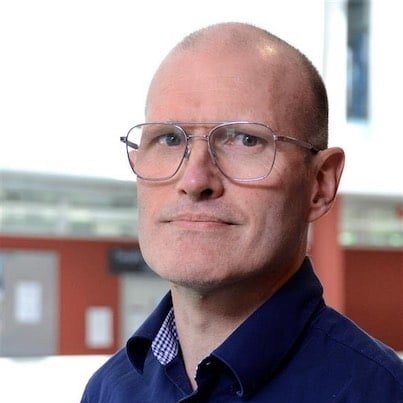
Mr Robert Mast
BSc Physiotherapy HCPC, MCSP, PgCert Musculoskeletal Sonography, Non Medical prescriber
Rob trained and qualified as a physiotherapist through the HvA in Amsterdam in 1993.
He has been working for Homerton University Hospital as an Extended Scope Physiotherapist in the primary care setting since 2004. He works one day per week in the Radiology Department of Homerton University Hospital as an MSK sonographer both for diagnostics as well as for carrying out interventional procedures.
What our attendees say about the advanced MSK ultrasound course….
“On hearing the new release of The Ultrasound Sites Advanced MSK course, i was intrigued to find out more. I am SO glad I did, the knowledge and skill set these guys bring to the table is exemplary.
FAQs
Q. How do I know that this course is of high quality?
All the lecturers on our courses have completed formal training MSK Sonography and have been using MSK Ultrasound for several years. Crucially, they are clinicians with many years experience of integrating ultrasound into their practice alongside other forms of imaging such as MRI giving a great breadth of experience to enable them to teach ultrasound in the correct clinical context.
Several teach on PG Cert MSK Ultrasound University based courses as guest lecturers, and present at different events each year. The lecturers are also members of executive committees of professional organisations such as the Chartered Society of Physiotherapy, The Royal College of Radiologists and British Association of Sports and Exercise Medicine, so are very familiar with MSK ultrasound and injection therapy development within different professional roles.
Q. Do we get to use the ultrasound machines?
We know the importance of hands-on practice when scanning! As we’ve been there when we were learning! So we can reply with a massive YES! The course is designed with high lecturer:student ratios, with on average a lecturer for every 5 students. We have a large number of machines to ensure that as much time as possible is spent with the students scanning under close supervision. We understand the subtlety of moving a probe to ensure you achieve a high quality diagnostic image. We try to provide a selection of machines including hand held mobile devices, laptop systems and cart based – this gives you the ideal opportunity to trial systems and work out what might suitable for you.
Q. Does this qualify me as a sonographer?
Surprisingly, a sonographer is not a protected title and therefore anyone can theoretically call themselves a ‘sonographer’. I guess a better way to pose this question would be ‘does this deem me competent to perform ultrasound in the setting I wish to use it in?’. Well, this depends on the setting and the local governance but essentially this course is designed as an important first step for people who are considering an ultrasound qualification, or who are interested in learning ultrasound to give them an idea of how ultrasound may fit into their practice. The course can also serve as a refresher, perhaps for certain joints.
To undertake a formal qualification which would lead you to be able to work in for example Radiology departments within the NHS you would need to progress on to complete a PG Cert qualification on a CASE accredited course. This course would place you in a strong position before starting your CASE course. We are creating a University accredited CASE course at the moment and hope to release news in early 2018!
Q. How do I know if I am scanning things correctly?
Because we have a large ratio of lecturers to students, there will be someone overseeing and teaching with each group for as much time as possible throughout the day to ensure that you are handling the probe correctly and there are lots of tips on image optimisatio and use of the machine technology to get the best image! Basically, we will be peering over your shoulder! After the course you can also join us on our Medshr group, to keep touch and share images for feedback and as a record of your ongoing learning.
Q. What are the advantages of doing this course?
The advantages of doing this course is that all of the tutors have extensive experience of working with ultrasound and ultrasound guided injections working within busy Radiology, NHS , Private and Sports injuries clinics..we have it all covered! Most importantly, we are enthusiastic and passionate about teaching..that is why we set this up in our spare time!
Q. What are the terms and conditions for refunds and bookings?
All details for the refund policy and bookings terms and conditions can be found HERE
Q. Do I need to have scanned before in order to attend a course?
For our Introductory MSK Ultrasound course..No. We have many people who attend the course who have little, or no, previous scanning experience. This course is designed to accommodate people who have no previous scanning experience and are interested in learning from scratch. However, as mentioned above, it is also a very useful learning experience for people with some scanning background as well.
For our injection courses it is best to have attended the Introductory course first. Have a read of this blog as well to gain some more ideas on why developing your diagnostic skills first is a good idea.
Q. Do you provide training to whole departments?
We are able to travel and provide a customised training program for a group of clinicians in a department. For further discussion email us at [email protected]
Q. Does this course qualify me to perform ultrasound guided injections in my workplace?
No. In order to perform image guided injections in your workplace you must conform to local guidelines and competency requirements. This course, however, may form part of your CPD and learning if you are looking to start performing ultrasound guided injections, or as a top-up course as part of your continuing CPD.
